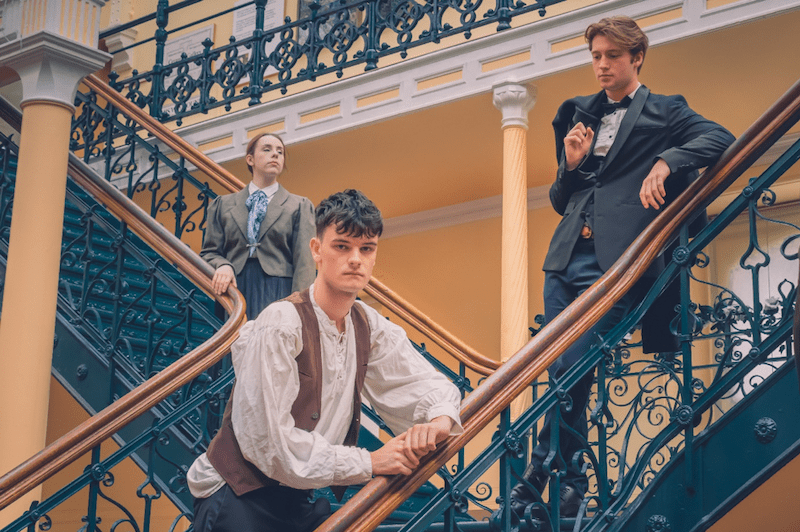Identifying with history as an LGBT+ person is an odd and isolating experience…
Love On Blue Canvas, 1890 is the first piece by writers Tara Morgan and Chlöe Standen, tackling the world of new-writing.
Founders of emerging theatre company The Blue Moon Theatre Company, Love On Blue Canvas had a sell-out run at the Edinburgh Fringe Festival and now the team are bringing their show to the bright lights of London…
With alternating scenes between the nineteenth and twenty-first centuries they tell the story of an artist, Jacob Capello, opening up a discussion about the truth of art and its place in the way we interpret history.
The titular portrait is an engagement portrait. The couple depicted are young and not in love: Jemima Barton and her fiancé Freddy Amberley.
Freddy was in love with Jacob two years prior to the start of the play. Reunited when Jacob returns to England from Italy, the two must re-establish the grounds of their relationship.
Art is always at the forefront of how we discover history. The past is most readily accessible to us today by how we re-tell it, but what survives is very rarely universal.
Individual experiences – and particularly the experiences of LGBT+ people – are more often than not merely footnotes to other people’s stories.
Identifying with history as an LGBT+ person is an odd and isolating experience – it can sometimes seem as if people like us simply did not exist until the middle of the twentieth century.
The idea of a misplaced, hidden history fascinated both of us. In setting out to write Love On Blue Canvas, we wanted to create something that explored the stories that have been overlooked and overwritten as well as the impact that erasure has had on our perception of the past.
In the twenty-first century scenes, the character of the Gallery Owner describes an idealised version of the past that subscribes to a primarily heteronormative narrative. He sees the painting as a testament of the love between Freddy and Jemima. The artist has been forgotten.
As the nineteenth century scenes progress, the relationship between Jacob and Freddy becomes clearer.
In his 1894 play, The Importance of Being Earnest, Oscar Wilde describes the Victorian era as an "age of ideals".
Wilde’s relationship with Lord Douglas and his imprisonment for it – one of the most famous examples of controversial homosexuality of the period – exposes both the truth and the pressures of this statement.
While the "age of ideals" produced some of Britain’s most beloved inventions, figures, works of art and literature, it also had a much darker underside which is often overlooked.
We wrote the play in 2017, coinciding with the fiftieth anniversary of the decriminalisation of homosexuality in England and Wales. This date is shockingly recent. We hope that Love On Blue Canvas adds something to that conversation.
Art is important in revealing the remarkable range of identities and experiences of the hidden histories of British LGBT figures.
Blue Moon believe it's important to remember and imagine them today, not only to honour the experiences of those who lived in and fought against a more repressive past but also to remind us that we are not, and never have been, alone…
Catch Love On Blue Canvas 1890 14–15 December 2018 at Bridewell Centre, Bride Lane, London EC4Y 8EQ. For tickets, click here.
Only reading DIVA online? You're missing out. For more news, reviews and commentary, check out the latest issue. It's pretty badass, if we do say so ourselves.
